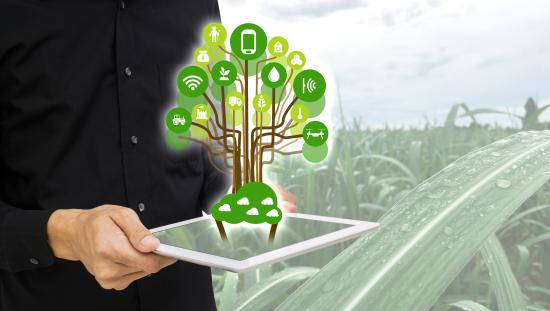AI and data technology have become more prevalent in agriculture, and panelists at the World Agri-Tech Innovation Summit discussed their impact on the industry and how to accelerate their adoption. The ability of AI to identify stressors on a crop and produce data to mitigate stress was emphasized, along with the need for more efficient, convenient, and sustainable data management. The challenge of connecting data points into a meaningful prescription for farmers was also discussed, with the creation of a democratized, geospatial data hub deemed necessary to bring data together. Trust and the promise of actionable data with a potential ROI are crucial to encourage farmers to share data. The resolution, or scale, of data has been getting higher, slowly narrowing down from entire farms to acres, and soon down to the individual plant. Finding the right technology to reach that scale at the right price is the primary challenge.
Accelerating Adoption of AI and Data Technology on Farms
At the 2023 World Agri-Tech Summit in San Francisco, panelists discussed the impact of data collection and artificial intelligence (AI) on agriculture and how to accelerate their adoption among farmers. Although the integration of AI and data technology has become increasingly popular, not all farmers are ready to adopt it yet.
Artificial Intelligence on the Farm
Mark Dann, the industry manager at Esri, explained that AI is capable of identifying stressors on a crop and generating data to reduce stress on the crop. He emphasized that once stress is introduced to a crop, it is difficult to recover its yield potential. The best thing to do is to maximize the response to the next level of stress.
Randy Barker, CEO, and co-founder of Intent Ag, a technology and insights company, emphasized that data management needs to be more efficient, convenient, and sustainable to be a valuable tool for farmers. He further explained that farmers generate data and that the industry can monetize that data by creating better products.
Mixing Data
The number of data solutions and data points per acre on a farm has increased dramatically in recent years, presenting a significant challenge to the agricultural industry in connecting those data points into a meaningful, specific prescription for farmers. Ron Baruchi, CEO of Agmatix, an agro informatics company, explained that the creation of digital modeling tools leads to siloed data, making it essential to find the right standardization level between data sets and create clear standards between different solutions.
Dann added that a democratized, geospatial data hub is necessary to bring data together. To encourage farmers to share data, strong privacy policies with the ability to delist or privatize data may help build trust among farmers. However, Barker stated that in his experience, farmers are more than willing to share data because they see the value of context. He added that farmers want to avoid trespassing or abuse of their data.
In conclusion, to accelerate the adoption of AI and data technology among farmers, the industry must ensure that data management is efficient, convenient, and sustainable. They need to find the right standardization level between data sets and create clear standards between different solutions. Finally, the creation of a democratized, geospatial data hub is necessary to bring data together. Strong privacy policies will build trust among farmers to share their data, leading to better and more efficient products.
Macro to Micromanagement: AI and Data Technology in Agriculture
According to Mark Dann, the younger generation of farmers are more willing to share data due to their familiarity with technology, but it all comes down to trust and the promise of actionable data with a potential ROI.
Resolving Data Scale
At the World Agri-Tech Innovation Summit, panelists discussed how the resolution, or scale, of data in agriculture has been increasing, moving from satellite-level to equipment precision planting. With AI technology processing data and computer vision, farmers will soon be able to manage their fields in real-time, down to the individual sections of the plant. Ron Baruchi, CEO of Agmatix, an agro informatics company, pointed out that finding the right technology to reach that scale at the right price is the primary challenge.
World Agri-Tech Innovation Summit
The World Agri-Tech Innovation Summit occurs annually in London and San Francisco. More information about the event can be found at WorldAgriTechUSA.com.
In conclusion, AI and data technology have enabled farmers to manage their fields with higher resolution, down to the individual plant. The primary challenge is finding the right technology at the right price. Trust and the promise of actionable data with a potential ROI are essential to encourage farmers to share data.
Don’t miss interesting posts on Famousbio
